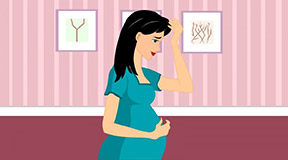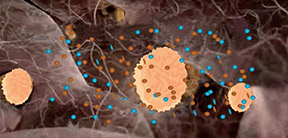Displaying items by tag: irregular periods
Hormonal changes during a menstrual cycle
Hormonal changes within the body are responsible for regulation of Menstrual Cycle. Every month the female sex hormones prepare the body to support a pregnancy, and without fertilization there is menstruation
On Day 1 of the menstrual cycle that is the first day of bleeding, estrogen, and progesterone levels are low. Low levels of estrogen and progesterone signal the pituitary gland in our brain to produce Follicle Stimulating Hormone (FSH). FSH, as the name indicates, begins the process of maturing a follicle in the ovary(fluid-filled sac in the ovary containing an egg).
What happens when you have low progesterone
Progesterone is produced in the ovaries and the adrenal glands. When a woman gets pregnant, it begins to be produced by the placenta too. Progesterone hormone helps in preparing the body for pregnancy and conception. When not pregnant, it helps in regulating the menstrual cycle. Not producing enough progesterone can cause difficulty getting or staying pregnant. Progesterone levels fluctuate throughout your menstrual cycle.
Polycystic Ovarian Disease
PCOD is one of the reasons for infertility in women. Women with PCOD have anovulatory menstrual cycles, i.e In these women, there is no release of the ovum from the ovary every month. They have multiple small cysts fluid filled sac-like structures in their ovaries. In fact, the word “Poly” means Many. These cysts occur when the regular changes of a normal menstrual cycle are disrupted.



